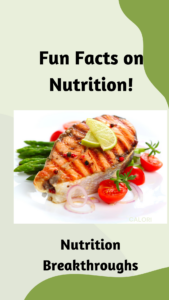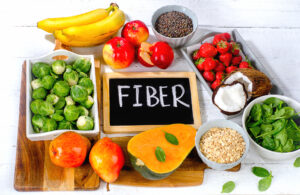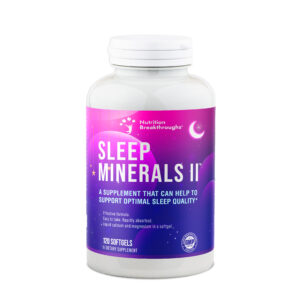Hello, and welcome back to another edition of “Fun Facts on Nutrition!” Get ready to be amazed by some more fun and fascinating facts about the food we eat. Let’s get started..
1. Beetroot Juice Can Boost Athletic Performance
Beetroot juice, made from red beets, is a favorite among athletes for its ability to enhance performance.
It is rich in nitrates, which are natural compounds found in vegetables like spinach, leafy greens and beets.
Your body converts dietary nitrates into a compound which can improve blood flow, reduce oxygen use, and increase overall endurance. Drink up and feel the beet!
Reference: Jones, A. M., & Vanhatalo, A. (2017). The Physiology of Nitrate Supplementation in Human Exercise and Sport. Annual Review of Nutrition, 37, 447-473.
2. Blueberries Can Improve Memory
Blueberries are often referred to as brain berries due to their memory-boosting properties. They are packed with antioxidants which can improve memory and cognitive function.
Antioxidants are natural substances in fruits and vegetables that may prevent or delay some types of cell damage and lower the risk of many diseases. Antioxidants are also concentrated in dietary supplements like vitamin A, vitamin C, and vitamin E.
Snack on some blueberries soon for a good brain boost!
Reference: Krikorian, R., et al. (2010). Blueberry supplementation improves memory in older adults. Journal of Agricultural and Food Chemistry, 58(7), 3996-4000.
3. Pumpkin Seeds Are a Natural Mood Booster
Pumpkin seeds are rich in tryptophan, an amino acid that helps our bodies make serotonin, the “feel-good” neurotransmitter. Neurotransmitters are chemical messengers that our body can’t function without.
Their job is to carry chemical signals from one neuron (nerve cell) to the next target cell. The next target cell can be another nerve cell, a muscle cell or a gland. Consuming pumpkin seeds boosts this action and can help improve our mood and promote a sense of well-being. Happy snacking!
Reference: Pumpkin seeds as nutraceutical and functional food ingredient for future: A review, Grain & Oil Science and Technology.
Fun and Health Go Hand-in-Hand
Isn’t nutrition fascinating? From athletic-boosting beetroots to mood-enhancing pumpkin seeds, these fun facts highlight the amazing world of food. We’ will regularly bring you more of these surprising and inspiring nutritional facts to help you on your journey to the healthiest life.
About Nutrition Breakthroughs
This natural health news is shared by Nutrition Breakthroughs, maker of the original and effective calcium and magnesium based sleep aid Sleep Minerals II, and Joints and More, a natural supplement for joint relief, less aches and pains, stronger hair and nails, and more energy.













